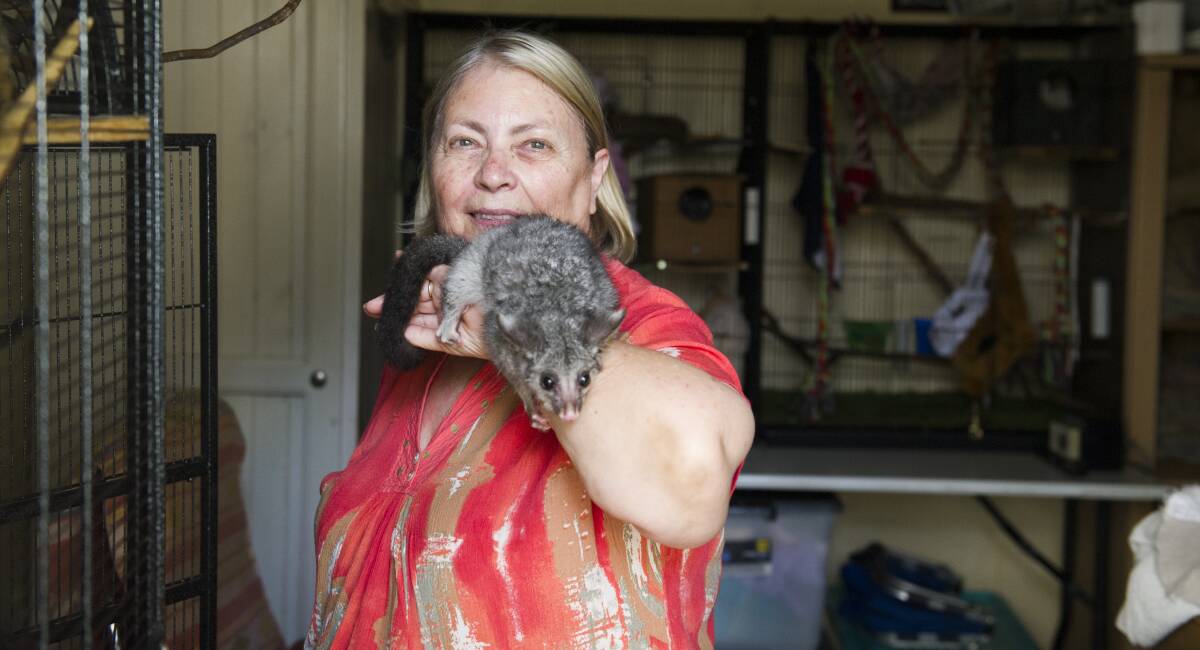ACT Wildlife will be unable to reliably man its 24-hour phone "into the foreseeable future", with the charity stretched to its limits by a shortage of volunteers and a 570 per cent increase in calls for assistance.
Subscribe now for unlimited access.
or signup to continue reading
The group is wholly reliant on volunteers and has been unable to employ phone operators because of a lack of funding, and it is now calling on the territory government to provide money to address the issue.

ACT Wildlife, which cares for injured, sick and orphaned native animals, is the territory's only active wildlife rehabilitation organisation. Its volunteers take calls and use their own resources to care for animals at their homes, and to transport them to and from vet appointments.
In a 2020-21 budget submission, ACT Wildlife president Marg Peachey said the number of calls for assistance made directly to the charity or referred to it by Access Canberra had increased from 1408 in 2014 to 9427 in 2018.
The organisation receives $6000 in government funding each year to take calls for assistance.
"There has been no increase in funding for providing this service over this period," Ms Peachey said in the submission.
"This has put a huge stress on our resources including our volunteers, many of whom also care for native animals that are injured, sick or orphaned."
READ MORE:
Ms Peachey told the Sunday Canberra Times that with many volunteers fatigued, ACT Wildlife had started switching off its 24-hour phone service periodically at times in the past month.
The situation had progressed to the point where the charity was now unable to reliably man the phone this weekend, or into the foreseeable future.
"We're at breaking point. Right now, we're in strife," she said.
"For some reason, there's just a paucity of volunteers. They're just not around.
"We send out emails and Facebook messages to everybody, saying we're desperate for someone to help, but we get very few putting their names down."
Ms Peachey said ACT Parks and Conservation Service rangers would have to pick up work that fell through the cracks.
"By turning the phone off, we're increasing the pressure on them and I feel really bad, but there are a few of us doing our best and we're heading for compassion fatigue," she said.
In its 2020-21 ACT budget submission, the charity is asking for $100,000 in annual funding to improve its services, allowing it to relieve pressure on volunteers and let rangers focus on their core duties.
"Our level of donations isn't enough to allow us to employ people," Ms Peachey said.
"Most charities have one or two employed people, but we don't."
ACT Wildlife is also seeking funding for several other purposes, including $50,000 to buy and run an animal ambulance, and $10,000 for the specalised foods needed during the recovery of a wide variety of rehabilitating animals.
Ms Peachey said drought had played a role in the increasing number of calls for assistance, with native animals heading for green, suburban areas as their usual food sources dried up.
This brought wildlife into closer contact with people, who were increasingly ringing for advice or to report incidents.

